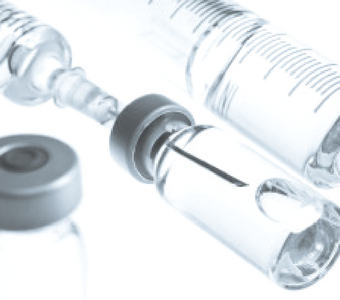Palatin Technologies (AMEX:PTN) announced this morning that its Phase IIb trial for bremelanotide met its primary endpoint, as well as secondary endpoints, for the treatment of female sexual dysfunction (FSD). Bremelanotide is Palatin’s primary value driver, and if the results of this trial prove out in a Phase III program, the drug could be the first and only treatment indicated for FSD. This is great news for the stock, and opens up significant options for the company in terms of further developing the compound on its own, partnering bremelanotide for late development and commercialization with a larger drug company, or an outright sale of the business. We believe that all options are on the table, and that the high visibility of the FSD treatment opportunity, with no “Viagra-like” treatments on the market for women, will likely attract large-cap pharmaceutical suitors.
Stock could run much higher off of initial surge this morning, despite significant warrants and options. PTN has a significant number of warrants and options that can dilute the share base upon exercise or conversion. Given today’s news, we assume new ‘in the money’ options/warrants will give rise to an additional 70 million shares that need to be added to the diluted share base, indicating a current market cap of about $98M for PTN at the current $0.93 per share price. We also estimate that the company had $25-$30M in cash at the end of 3Q, indicating that the market is currently valuing bremelanotide for FSD at ~$70M. Given that companies with successful Phase II assets typically trade in the $100M-$300M range, we believe PTN can continue to work higher throughout the trading session. Note that prior to the data, analyst price targets ranged from $2.00-$4.75, indicating that PTN could more than double from current levels. Expect PTN shares to remain strong throughout the day, on take out speculation for PTN, and analysts potentially raising their price targets.
Phase IIb results summary. The top-line results released this morning demonstrated that women taking bremelanotide experienced a statistically significant increase in the number of Satisfying Sexual Events (SSEs), and also had improved measures of overall sexual functioning and distress related to FSD, relative to placebo. The trial evaluated 327 pre-menopausal women with female sexual arousal disorder (FSAD), hypoactive sexual desire disorder (HSDD), or a combination of both, the most common types of FSD. The trial results showed a clinically meaningful and statistically significant improvement in the number of SSE’s in women taking bremelanotide (p=0.018). In fact, women treated with bremelanotide had a 50% increase in SSE’s over the study period, vs. just 12% with placebo. Importantly, the rate of success with placebo can be quite high in FSD trials, so the highly statistically significant increase over placebo with bremelanotide is impressive. In addition, preliminary analysis of key secondary endpoints showed clinically meaningful and statistically significant improvement in patients treated with bremelanotide, including measures such as the Female Sexual Function Index (FSFI, achieving a P value of 0.0017), and reduction in distress related to sexual dysfunction, as measured by the Female Sexual Distress Scale-DAO (FSDS-DAO, achieving a P value of p=0.036). According to PTN, bremelanotide was well-tolerated during the trial. The most common types of treatment-emergent adverse events reported more frequently in the bremelanotide arms were facial flushing, nausea and emesis, which were mainly mild-to-moderate in severity.



